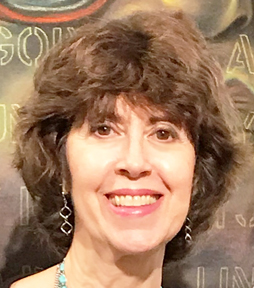You lived in China from 2006-2010. Did you specifically move to China to work as a journalist?
"Yes, my goal was to work as a journalist, primarily in radio, and my dream was to make a documentary film."
Before the documentary, you did a series of shorter video pieces about Ai Weiwei. One focused on his photographic work. Who's Afraid of Ai Weiwei was for PBS Frontline, and you did a vlog for the New York Times, Evolution of a Dissident. What was the impetus for you to make the transition from journalist to filmmaker? Was the PBS profile the foundation for your current documentary?
"It's funny how all the shorts fit into the creation of the
feature Never Sorry. I started
filming with Ai Weiwei for a short video about his New York Photographs
exhibition in Beijing, at the Three Shadows Photography Art
Centre. So this project, and my relationship with Ai Weiwei, was born out
of a short film. Then I continued filming for several years for the feature Never Sorry. When I came to New York to
work on post-production, PBS Frontline approached me about doing a report, and
later after Weiwei was detained and released, the NYT Op-Doc series invited me
to contribute. I took some of the footage that didn't make it into the feature
and made that Op-Doc."
You have come to know Ai Weiwei very well. Do you think the experience of his father being defamed during the Cultural Revolution is a subtext to all his activities aimed at confronting governmental power and oppression?
"I think that experience meant that from the very beginning, Ai Weiwei had a clear picture of the power of the state to turn on an individual."
Did you have any problems from the Chinese authorities when filming? There are several almost comical sequences where everyone is filming everyone else. The cops are documenting Ai Weiwei, who in turn is documenting them...and you are filming it all!
"In those instances, the absurdity of the whole situation always crossed my mind, and I knew these were moments that I wanted to show in the film. Yes, I would also feel a flash of anxiety, wondering whether it was a problem that I was captured on the police's footage or on the surveillance cameras outside his house. Ultimately, though, it was unclear who would ever be reviewing those tapes, and except for those trips to Chengdu where I was filming with Weiwei at the police stations and outside courthouses (when police did stop me or try to take my tapes), I did not run into any interference from authorities while working there."
There have always been artists throughout history who have been diaristic in their work. However, with the advent of the Internet and social media, Ai Weiwei has taken advantage of a perfect storm and has moved his art into a kind of "online performance" sphere. Do you see the lens of new media as being integral to Ai Weiwei's artistic expression?
"Absolutely. It's a tool that he has leveraged effectively to reach broader audiences that extend outside the art world, and he absolutely thrives on it. It's not just about him finding a new way to communicate, but it's about engaging others in the dialogue and encouraging them to respond in real time, to use their voices and to express themselves."
At Sundance, you referenced Ai Weiwei as both "China's most contemporary artist and also its most outspoken domestic critic." What did you learn from making this documentary about how artists can be agents for change, and what do you think creatives in open societies can learn from his example?
"This is one of the biggest lessons I learned from this whole process. My new personal definition for an artist is someone who has a vision for a better future, and who uses creative expression to communicate that vision to others. I am really excited about the role of artists and culture in general in shaping our political discourse. In the US, we have to contend with so much apathy in the face of seemingly immutable problems, and facts are driven by ideology as opposed to the other way around. Maybe we really need to turn to the artists, comedians, people who express themselves in the cultural sphere, to help elevate the discussion and lead it to a more productive place."
This article originally appeared on the website cultureID.
(Note: You can view every article as one long page if you sign up as an Advocate Member, or higher).





